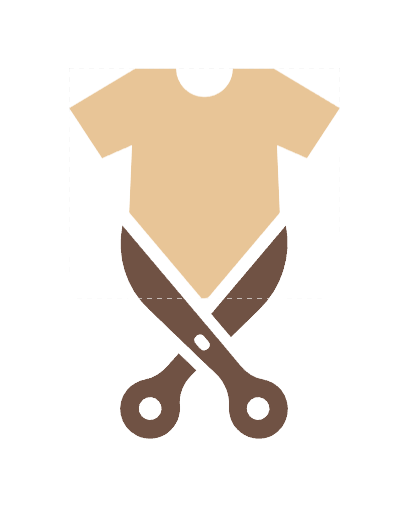As human beings, we are constantly adapting and changing to our environment and culture. We strive to make sense of our worldview and experiences by expressing ourselves through the clothes we wear, making fashion an ever-shifting reflection of our social evolution. Clothing is, in many ways, an outward expression of the times we live in, slowly transforming as we shift our perspective. In this article, let’s uncover the power behind fashion and uncover its ability to shape social change.
1. Introducing Fashion and Social Change
Fashion has a unique power to help shape our culture. It has always been an important part of how we communicate our sense of identity. Nowadays, fashion can also play an even more profound role in creating positive social change. By wearing certain garments and accessories associated with particular causes or causes around the world, people can express, display, and even help create social change.
- Fashion and clothing as a form of protest – Through iconic items such as the black and red zapatista scarf and the Nguni blanket, people are creating a narrative of the protest and celebrating the resistance of their causes.
- A way to amplify voices and ideas – By raising awareness and inspiring others to consider how fashion can be used to help illuminate issues and advance causes, people are using fashion to help give voices to those who have been unheard.
Fashion can also be an empowering tool, by allowing people to proudly declare their identity or choosing clothing that reflects the person they want to become. From Students for Justice in Palestine’s “If you don’t stand for something you will fall for everything” t-shirts and hats, to H&M’s “Movement Denim” jeans that are made from post-consumer cotton, it’s never been easier to express yourself through fashion and make a statement.
Global fashion is now encouraging people to join the conversation, showcase their values, and become part of a collective that is making an impact. We need to use our platforms to consciously amplify and honor the voices of those who are not here, those who are silenced, and those who continue to fight for their rights.
2. Exploring How Clothing Reflects Cultural Shifts
As cultures adapt and develop over time, clothing evolves along with them. Throughout history, dress served as an identifier to a certain community, signifying social status, region, and sometimes even occupation. Today, many individuals use their clothing to share their values, beliefs, and even sense of creativity with the world.
- From the intricate garments of nobility to the sleek athleisure wear of the present, the clothes we wear tell a story about our culture
- The rise of sustainability-focused fashion speaks to our desire to make better-educated purchases and invests in the environment
In some cases, clothing has even been the vehicle for effecting social change. For instance, the early 20th century saw the rise of women’s androgynous fashions that challenged the constrictive nature of women’s clothing at the time. Similarly, civil rights groups have long utilized clothing as a form of protest, seeking social and systemic justice.
Clothes can tell a powerful story about where we are and who we are. From bold colours to obscure patterns, the constantly-evolving fashion industry is often able to tell us a lot about time and place we represent. By exploring the clothes we wear, we can gain a better understanding of the contexts of our culture and how it has progressed.
3. Examining Fashion as a Form of Social Activism
The effect of fashion on society goes far beyond the mere statement of personal style. It has become a powerful tool for advocacy, representing messages of resistance and unification through its visual platform. Here are some examples of fashion acting as a form of social activism:
- Protesting Injustice: Streetwear has become a popular way to speak out against racism and oppression. This trendy form of expression influenced by hip-hop culture has given uniformity to a cause.
- Inspiring Change: We have seen fashion designers support progressive causes by donating money to charities or using their platforms to raise awareness. Even early on, suffragettes used fashion to distinguish themselves.
- Monitoring Government: Protestors have used fashion to draw attention to their cause, whether it’s through t-shirts criticizing news political leaders or handmade jackets with messages of dissent. Melissa Santana-Rivera’s “Nasty Woman” shirts, for example, sold out in less than a day and raised thousands of dollars for Planned Parenthood.
We have seen time and time again that fashion can be a unifying force for belief. It breaks down the barrier between art and politics, transcending social classes and inspiring change in a lasting and meaningful way. It’s only fitting, since fashion has long been at the forefront of culture, that it should become a powerful tool for social justice.
4. The Growing Influence of Social Movements in the Fashion Industry
The fashion industry has long been influenced by societal and cultural trends, and as the world becomes increasingly interconnected through digital media, social movements have found their place in the system.
- The use of fashion to express political and cultural statements has emerged as an important element, with individuals participating year after year in numerous events to express their thoughts. Organizers of key cultural events such as London Fashion Week, New York Fashion Week, and French Fashion Week are collaborating with social campaigners and charities to help spread their message.
- Digital campaigns such as #MeToo and #BlackLivesMatter have not only sparked a global debate but have also had a lasting effect on the fashion industry, resulting in numerous prominent designers and mainstream clothing lines vying for their own socially conscious initiatives.
- Celebrity powerhouses such as The Kardashians and Rihanna have also chosen to use their huge influence to promote social causes, as have major fashion brands, such as Stella McCartney, Calvin Klein, and Burberry, who have all included meaningful messages in their designs.
From making political statements, to fighting for more ethical fashion production, to spreading awareness about global pandemics, the influence of social movements on the fashion industry is growing. Such movements have not only pushed the industry towards greater environmental and ethical consciousness, but have also had a major impact on public opinion and the way we view fashion today. The true power of social movements in the fashion industry lies in their potential to create a lasting cultural legacy.
5. Looking Ahead: Anticipating the Future of Fashion and Social Change
The possibilities for fashion and social change are near-limitless. By looking ahead, we can begin to anticipate the ways in which the trends of today will impact our future. There is a strong potential for fashion to serve both as a form of expression and as an agent for meaningful social change.
Pioneering Sustainable and Ethical Production The fast fashion industry has come under heavy scrutiny in recent years for its lack of sustainability and unethical labour practices. We are likely to see a shift towards more sustainable practices and production, as people become more conscious of the consequences of their fashion choices. Additionally, as technology advances, we may see more biodegradable and eco-friendly fabrics coming to the forefront.
The Rise of Customisable Fashion With the help of digital tools, we can expect to see more clothing that can be adjusted to fit perfectly. Through data-driven designs, the fashion industry has the potential to create pieces of clothing for individuals—based on their size, shape, lifestyle and preferences—to wear throughout their entire life.
Fashion With a Focus on Empowerment & Inclusion The trend of fashion as a tool of empowerment will continue to rise. As a result, we can expect to see more people across all genders and ages wearing clothing with a positive message. For example, brands are increasingly focusing on designs that promote body positivity instead of traditional beauty standards. In addition, advocates are pushing for greater representation and more diverse models in the fashion industry.
From sustainable and ethical production, to customisable fashion, the future of fashion holds exciting possibilities to promote meaningful social change. Going forward, fashion will continue to shift and evolve in accordance with the emerging needs and values in our society.
As fashion is an ever-evolving part of our lives, it’s clear that how we choose to dress has a deep-rooted effect on the culture we live in. Each garment we select can be a reflection of our values and beliefs, and it’s fascinating to see the power that fashion has in leading and inspiring social change. Whether it’s making a statement with a pink pussy hat or voicing our stance on an environmental issue through a T-shirt, our clothing can help shape our future and the impact it will have on the world around us.





